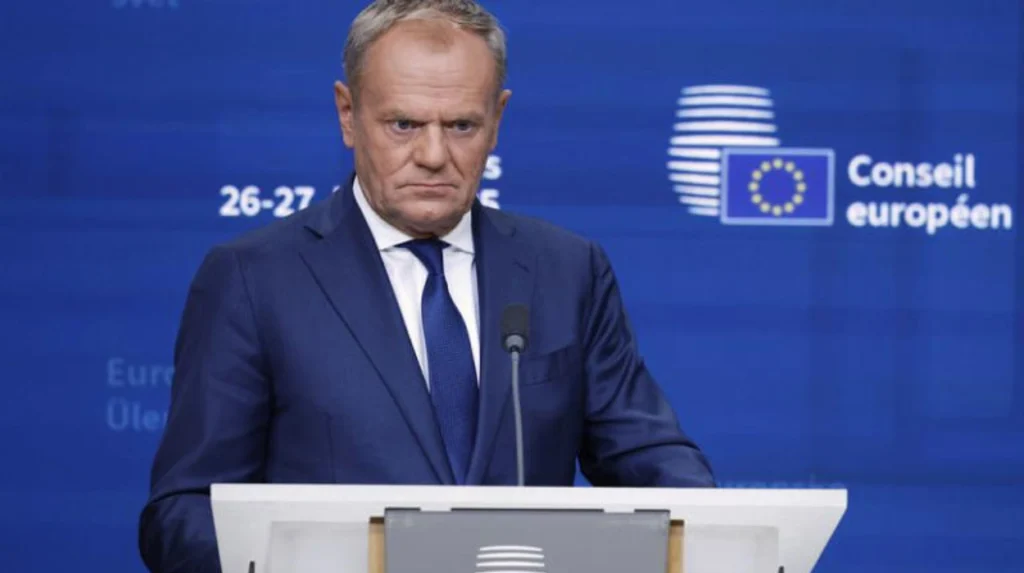European Union payouts intended to support Poland’s hospitality sector in recovering from the severe economic impacts of the COVID-19 pandemic have been temporarily frozen. The decision comes amid an ongoing scandal involving alleged misappropriation and irregularities in how some of the allocated funds were spent. The Polish Minister for Funds and Regional Policy, Katarzyna Pełczyńska-Nałęcz, confirmed that no further disbursement of these funds will occur until a thorough audit of all contracts has been completed.
This suspension involves more than 1.2 billion zloty (approximately €282 million) in grants aimed at helping hotels, restaurants, cultural venues, and other hospitality-related businesses that suffered severe losses during pandemic lockdowns. The freeze has affected about 256 million zloty of this sum while investigations into specific cases of potential misuse are ongoing.
The Discovery of Irregularities Sparks Public Outcry and Political Clash
The scandal erupted after internet users and media investigations revealed that some funds had been used for unexpected and extravagant purposes. These included purchases of yachts, luxury cars such as Porsche Cayennes and Range Rovers, sauna equipment, solariums, coffee machines, and even the funding of a swingers’ club. These revelations have shocked the Polish public and raised serious questions about the oversight and administration of EU recovery money in Poland.
Minister Pełczyńska-Nałęcz explained the decision in a press briefing,
“Every złoty will be checked,”
emphasizing the government’s commitment to restoring public trust in the management of EU funds. She also highlighted that the rules governing the grants were devised by the preceding Law and Justice (PiS) government, which complicates the current government’s efforts to ensure proper use of the resources.
This controversy has intensified political tensions, with Prime Minister Donald Tusk blaming the previous PiS administration for designing the grant program and creating delays in accessing the funds due to ongoing legal disputes with the European Union. Tusk acknowledged the need for swift action to utilize the funds but admitted that this does not excuse negligence or improper conduct by those responsible for the grants. He stated,
“I will not accept any waste of KPO funds,”
referring to the National Recovery Plan (KPO).
Government Audits and Leadership Changes in Response to the Crisis
Following the unfolding scandal, the Polish government launched two simultaneous audits: an internal review and an independent audit by the Polish Agency for Enterprise Development (PARP), which administers the grants. The situation escalated to the point where the president of PARP was dismissed in July amid concerns over systemic issues in managing the funds.
Beyond financial inspections, the government has halted all new contract payments related to the hospitality sector until these investigations provide clarity. Minister Pełczyńska-Nałęcz explained that suspending the payments was essential to safeguard the remaining funds and prevent further misuse.
European Commission Demands Clarifications and Oversight
The European Commission has been closely monitoring the situation and has formally requested explanations from Warsaw regarding the alleged misappropriation of recovery funds. EC spokesperson Maciej Berestecki emphasized that Poland is “obliged to take clarifying action” and ensure accountability for the distribution of the KPO grants.
The Commission’s intervention underlines the high stakes of managing billions in EU recovery funding meant for post-pandemic rebuilding. Delays or failures in properly using these resources not only impact Poland’s economic recovery but also raise concerns across the EU about governance and transparency in fund administration.
Broader Economic and Political Implications in Poland
The scandal has triggered a political backlash from multiple fronts. The opposition Law and Justice party, now out of power, accuses the current government coalition of “squandering public funds” and favoritism toward business owners linked to the ruling elite. PiS has launched a media campaign showcasing examples of alleged fund misuse to bolster its criticisms.
Meanwhile, the newly inaugurated Polish President Karol Nawrocki publicly condemned the misallocation of money, stating,
“I do not want funds on behalf of 10.5 million Poles spent on saunas, solariums and coffee machines. I want funding for Polish families.”
His remarks reflect a broader public demand for prioritizing social and economic recovery over indulgent or frivolous expenditures.
Experts and civil society voices also weighed in, with concerns about the rapid rush to spend the money possibly contributing to lax oversight. Filip Pazderski, a civil society program manager, noted that although the scandal centers on a small fraction of the total recovery funds, the damage to public confidence could be significant without strong corrective measures.
Impact on Poland’s Post-Pandemic Recovery Prospects
The National Recovery Plan was a cornerstone of Poland’s strategy to revive a pandemic-battered hospitality and tourism industry, which faced multiple lockdowns and a steep drop in revenues. The freezing of these critical funds threatens to delay or derail many projects that could have spurred economic renewal, job creation, and sector stabilization.
The already allocated amount of nearly €60 billion from the EU to Poland for overall recovery highlights the scale of the assistance. However, complex political disputes over the rule of law between Brussels and Poland during the previous government severely delayed fund access. The lifting of these freezes under Prime Minister Tusk’s administration was initially hailed as a major achievement before this misuse scandal emerged.
Moving Forward: Government Promises Reform and Transparency
The current Polish government has pledged stringent reforms and improved audit mechanisms to prevent further abuse and regain trust. Minister Pełczyńska-Nałęcz reiterated the importance of transparency, stating that the government is committed to ensuring that funds serve their intended purpose of supporting businesses genuinely affected by the pandemic.
Prime Minister Tusk has emphasized that those responsible for negligence or wrongdoing will be held accountable, and that the scandal, while damaging, should serve as a catalyst for a more effective and ethical management system for EU funds.
This scandal underscores the challenges many countries face in administering large amounts of EU recovery money quickly and efficiently amid diverse political pressures and economic urgencies. Poland’s experience serves as a cautionary tale about the importance of oversight, public trust, and political stability in successful post-pandemic recovery efforts.







